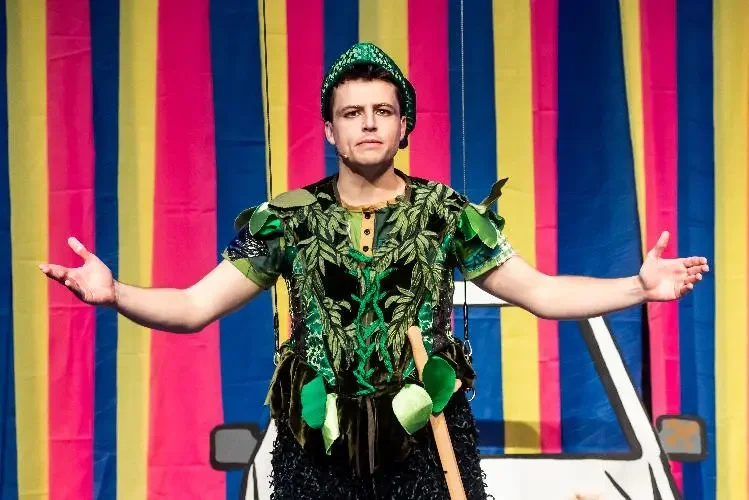Dumping, Cockpit Theatre Review
Written by Greta for Theatre & Tonic
Disclaimer: Gifted tickets in exchange for an honest review
The end of any friendship can be devastating. If the breakup happens to be with your best friend, with whom you have shared your teenage years, a flat over a hardware store, and eventually your transition into womanhood, it becomes an out-and-out messy, confusing and excruciating separation – or, as the protagonists end up calling it, “divorce”.
Armed with this awareness, Dumping sets out to explore the complexities of the profound friendship between Alana and Bea, whose love for each other has become “diluted by extreme irritation” as they have both grown up to be the kind of individual that the other can’t stand.
Alana is married, has a daughter, works in media, and believes that there is no way to defeat the system, so there is no use trying. Bea, more idealistic but less proactive, has yet to find a job that fulfils her, refuses to have or engage with children (even when they’re Alana’s), and is on a journey of finding out who she really is – a journey that, she believes, starts by cutting off her best friend from her life. This is a captivating premise that could finally bring front and centre the always-underrated grief for lost platonic love, giving that kind of heartbreak the same value and recognition that is often awarded to romantic ones.
While the aim to give much-needed dignity and gravity to friendship is truly needed and appreciated, Dumping is missing some life blown into it. As the show progresses, we witness the two women working through moments of resentment, bickering, reminiscing and sharing. However, these moments lack the emotional depth and complicity that you would find in any meaningful friendship, prioritising trivial, disengaged exchanges over open communication. It’s hard to understand why Alana and Bea don’t just accept the breakup and go home if they feel such a profound indifference towards each other. As they spend a barren night together, knowing they are never going to see each other again, but not expressing any kind of anger, sorrow, or even curiosity about this life-altering fact, I felt a sense of alienation that was difficult to shake off.
Even when the show ventures into more stimulating and convincing territory, the themes are barely touched on before being discarded. Almost halfway through, it becomes apparent that Bea and Alana have two fundamentally different visions of friendship: while the former believes it’s a relationship that has to be nurtured, and that effort must be put in by both parts so that it doesn’t wither, Alana enjoys the relational dimension of friendship exactly because she sees it as a space in which nothing is asked of her, and she doesn’t have to tend to it in order to keep it. This fundamental difference between the two women could have been a starting point for an exploration into why things between them haven’t been working, the hurt they’ve caused each other even without wanting to, and the way they’ve been expressing love without the other understanding it for what it was.
We do get an awkward exchange, with little context, and cut short too soon, on love languages; we also see a brief glimpse of Alana’s vision of a friend as someone she can empower and toughen up, while Bea is more concerned with nurturing her best friend’s softness and sense of wonder. Both approaches are interesting; nonetheless, there’s never a moment in which the two sit down and truly talk and listen to each other, giving their friendship the importance that they both say it deserves.
That’s perhaps one of the major flaws of the show: things are often said but rarely shown. We are told that “friendship” is too small a word to describe what Alana and Bea are to each other; “family” is perhaps more apt, but still doesn’t convey the multitude of what their bond represents. What we are shown from their behaviour, though, paints a different picture: one lacking warmth, understanding, shared history or emotional closeness. What comes across doesn’t look or feel like the portrayal of two people who love each other but have drifted apart; that can happen, and can cause a lot of pain, frustration, and turmoil. What we see in Dumping, though, is two women having shared most of their lifetimes in allegedly meaningful, rich and intimate ways, but somehow not having grown closer or more genuine as a result of any of it. I didn’t think friendship was represented properly in the show, and I had a hard time to find elements that I could connect back to my own relationships, even the ones that have been more superficial or have gone wrong.
Wanting to, but being unable, to believe in the friendship that Alana and Bea say makes them like family, creates an emotional disconnect between audience and material. This lowers the stakes of the play, and we end up caring much less than we should about whether these two best friends will be able to mend their rapport, or if the separation will be final. The concept of two women growing to be very different people, and the strain that this puts on their friendship, is powerful and relatable, but is not explored with the depth it would require to make it work.
Dumping is marketed a work-in-progress. At its current stage, it almost seems not to take its subject matter seriously enough, not doing justice to the drama and intensity inherent in its premise. Future developments could benefit from a research and development process, perhaps including conversations with more people with lived experiences of such breakups, to create a deeper, bolder and more nuanced rendering of a friendship grown uncomfortable.
★















